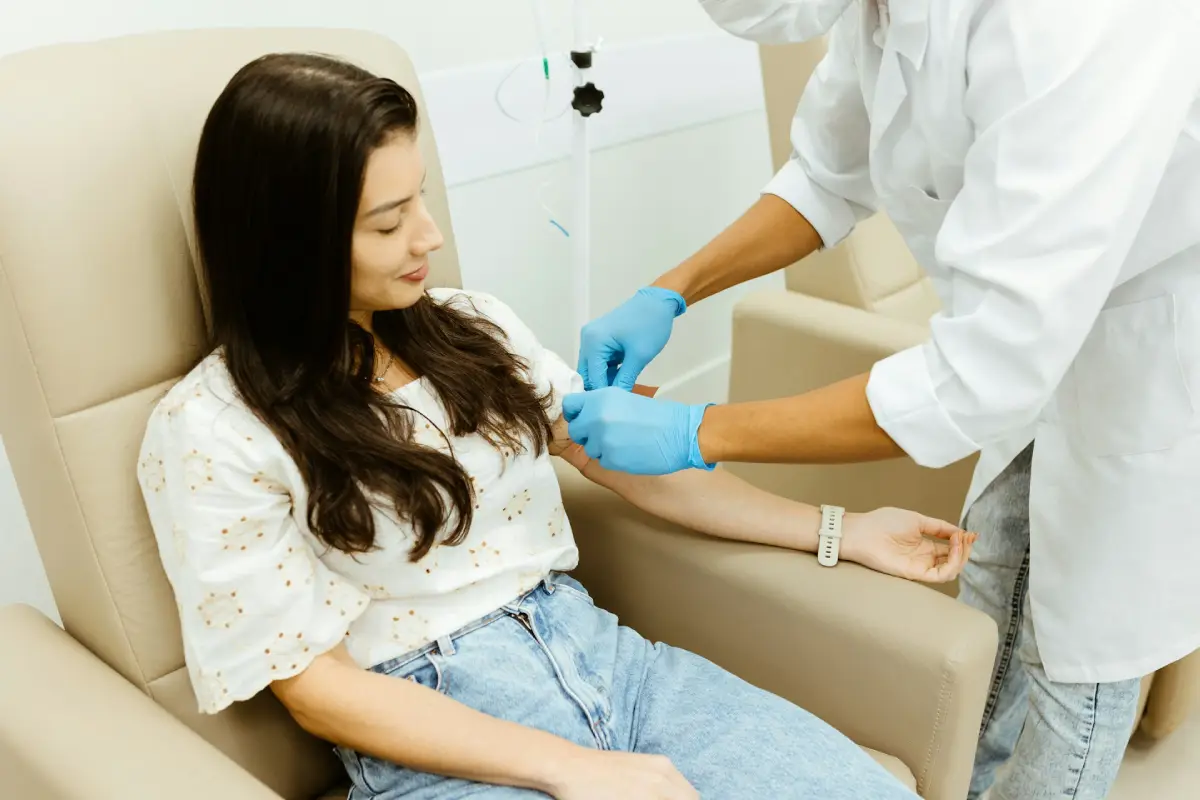Waking up after an exhilarating night out can leave your body feeling drained, your mind a little hazy, and your motivation to be productive at an all-time low. While classic recommendations, such as drinking plenty of water and getting some extra sleep, are tried and true, taking a more creative and holistic approach to your recovery can help restore your energy and mental clarity even more quickly.
Innovative solutions, such as targeted IV hydration treatments like those offered at https://ivelements.net/vitamin-drips/hangover-rescue, provide relief through a blend of vitamins and minerals specifically designed to help your body recover rapidly from a night of celebration. These advanced therapies, when combined with practical techniques and self-care rituals, can support every aspect of your recovery. They help you meet your daily demands with renewed vigor while also reducing the time it takes to return to your usual self.
Embracing science-backed remedies, gentle self-care practices, and restorative nutrition not only speeds up your physical recovery but also addresses the root causes of common hangover symptoms for more lasting results. From replenishing essential electrolytes often lost during a night of drinking to engaging your mind and body with mindful exercises and relaxation, this comprehensive guide highlights innovative strategies that can transform your post-celebration routine.
By weaving these creative tips and proven recovery methods into your morning after, you’ll experience a smoother transition from party mode back to feeling refreshed and ready to seize the day.
Contents
Hydrate with Electrolytes
Alcohol acts as a diuretic, quickly depleting the body’s fluid and mineral reserves, which is why headaches, muscle weakness, and mental fog are so common the next day. While rehydrating with water is essential, for optimal results, it’s better to focus on drinks that contain electrolytes such as coconut water, oral rehydration solutions, or dedicated sports beverages.
According to the Cleveland Clinic, these options rapidly restore sodium, potassium, and magnesium, which are crucial minerals that support muscle function, nerve signaling, and mental clarity. Keep an electrolyte drink readily available by your bedside before you sleep so you can begin rehydration as soon as you wake up.
Engage in Light Exercise
Although it might feel counterintuitive to get moving after a long night out, engaging in gentle exercise can be one of the most effective ways to recover. Activities like restorative yoga stretches, a leisurely walk in nature, or even some mild swimming help improve circulation, boosting oxygen levels and encouraging your body to eliminate toxins more readily.
Moving your body also releases endorphins, the “feel-good” chemicals that can elevate your mood, alleviate mild headaches, and help restore mental focus, all without overwhelming your system. If you’re not ready for a full workout, even a few minutes of easy stretching or a slow stroll around your neighborhood can make a noticeable difference. Remember to wear comfortable clothing, listen to your body, and stop if you feel lightheaded or dizzy—the goal is gentle movement, not exertion.
Nourish with Nutrient-Dense Foods
Your body uses a significant amount of resources to process alcohol, especially valuable vitamins and minerals that support liver function, metabolism, and cell repair. Supporting your recovery with nutrient-rich foods can help accelerate the process, stabilize blood sugar levels, and enhance your overall sense of well-being. A balanced breakfast—such as eggs for protein, avocado for healthy fats, and whole-grain toast for complex carbs—provides sustained energy and a broad range of essential nutrients to start your day right.
Fruits like bananas and berries not only replenish antioxidants but also help replenish lost electrolytes. Adding a sprinkle of nuts or seeds delivers extra magnesium, zinc, and healthy oils, which are important for cellular health and hormone balance. If your stomach is sensitive, opt for easy-to-digest foods like oatmeal or smoothies that combine leafy greens, Greek yogurt, and a spoonful of nut butter.
Soothe with Ginger
Nausea and digestive discomfort are frequent after-effects of drinking, especially when alcohol irritates the stomach lining. Ginger has been used for centuries as a natural remedy to soothe the stomach and alleviate feelings of queasiness and indigestion after festive meals. Sipping on fresh ginger tea, chewing a few slices of raw ginger, or enjoying ginger chews can be a gentle but effective way to calm your digestive system.
You can integrate ginger into your first meal by grating a small amount over fruit or oatmeal, or simply infuse hot water with ginger slices and a splash of lemon. This not only helps reduce discomfort and bloating but can also help you regain your appetite, making it easier to nourish your body as you recover.
Prioritize Quality Sleep
Even a fun night out can disrupt your regular sleep patterns, often making it hard to enter the deep, restorative phases of sleep that your body needs to heal and recover. Prioritizing quality sleep—by aiming for at least 7-9 hours in a quiet, dark room—gives your body critical time to reset and repair. Make your environment as restful as possible by using blackout curtains, a white noise machine, or a comfortable sleep mask to block out distracting light.
Avoiding screens for at least an hour before bedtime supports your body’s natural circadian rhythms, helping you fall into a deeper, more restful sleep. If napping feels necessary during the day, keep it brief to avoid interfering with nighttime sleep.
Refresh with a Cold Shower
Taking a cold shower offers a revitalizing jolt, rapidly waking up both body and mind after a sluggish morning. The sudden coolness increases circulation, delivering more oxygen to your muscles and organs, and can even help relieve headaches or muscle aches. If you’re new to cold showers, start with a comfortable water temperature and then gradually make it cooler for a brief period.
Even a quick, chilly rinse can be invigorating, reduce inflammation, and help you shake off any lingering grogginess, leaving you more awake and alert as you move into your day.
Practice Mindful Breathing
Post-party stress, dehydration, and fatigue can heighten anxiety and make it challenging to focus. Mindful breathing exercises—such as inhaling slowly for four counts, holding for a few seconds, and exhaling gently—can lower your heart rate, ease tension in your muscles, and help reset your emotional state.
Try setting aside just a few minutes to focus solely on your breath while sitting comfortably or lying down, to promote immediate relaxation and mental clarity. Simple mindfulness practices like this can help you feel centered and calm, making it easier to handle the day’s responsibilities with a positive outlook.
Replenish Electrolytes
Alongside hydrating drinks, you can support your recovery by incorporating potassium-rich foods—such as bananas, sweet potatoes, or oranges—into your daily snacks and meals. These naturally help to balance sodium levels, while also supporting healthy nerve, muscle, and heart function. If you find it difficult to eat solid food right away, a high-quality electrolyte powder or supplement mixed with water can provide an easy and effective alternative to maintain your body’s balance of key minerals as you recover.
Combining these practical and creative strategies can truly transform your post-night-out experience, helping you bounce back faster and get the most out of your day—even after the liveliest of evenings. Whether you opt for quick solutions like IV hydration or prefer gentle, time-tested natural remedies, prioritizing recovery and listening to your body will help you feel your best so you can face the day ahead with energy and clarity—no matter how hard you celebrated the night before.



